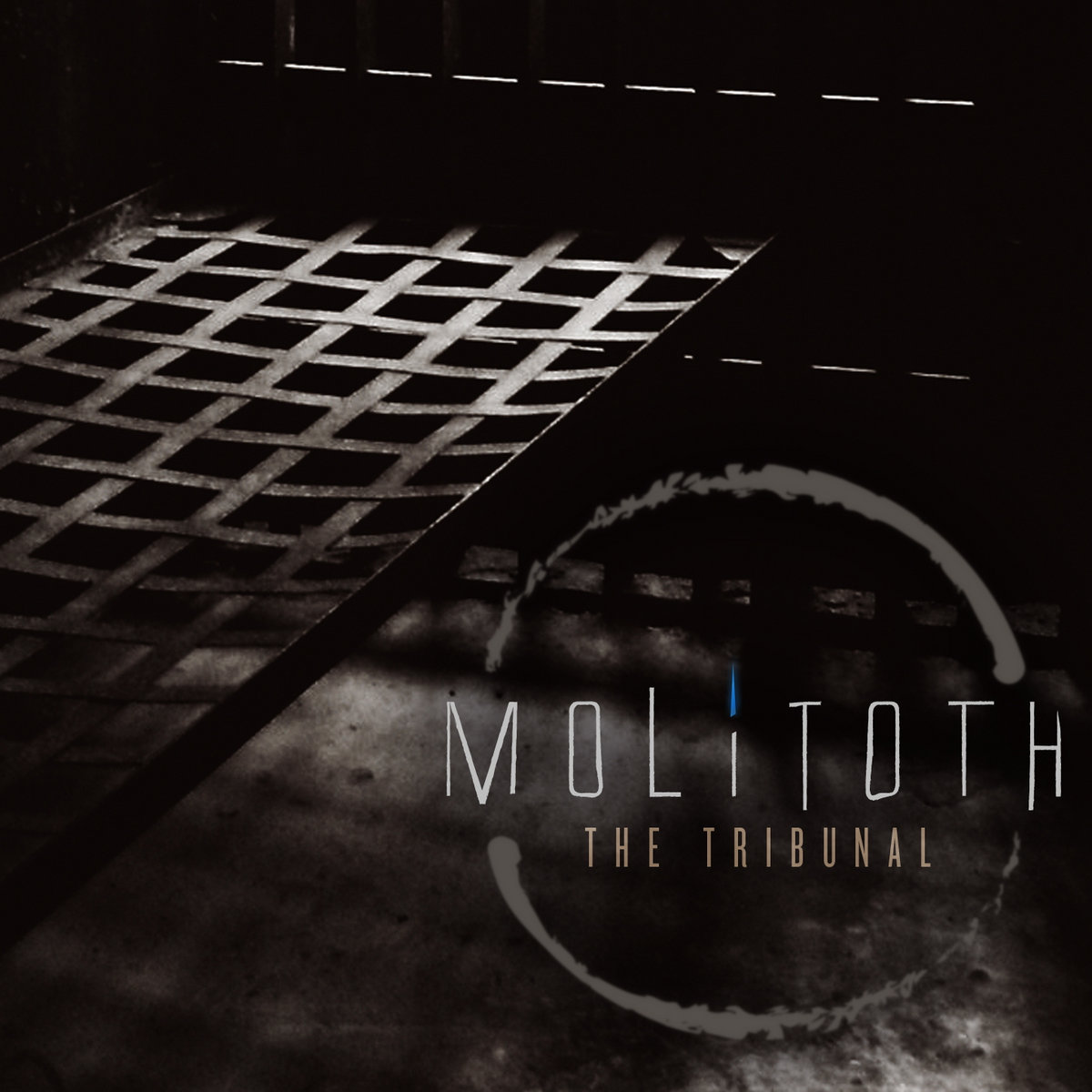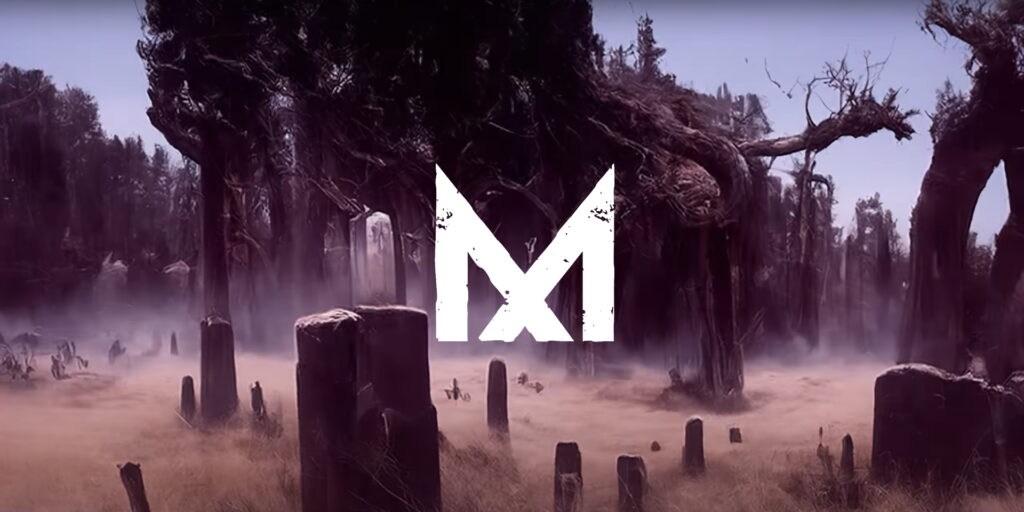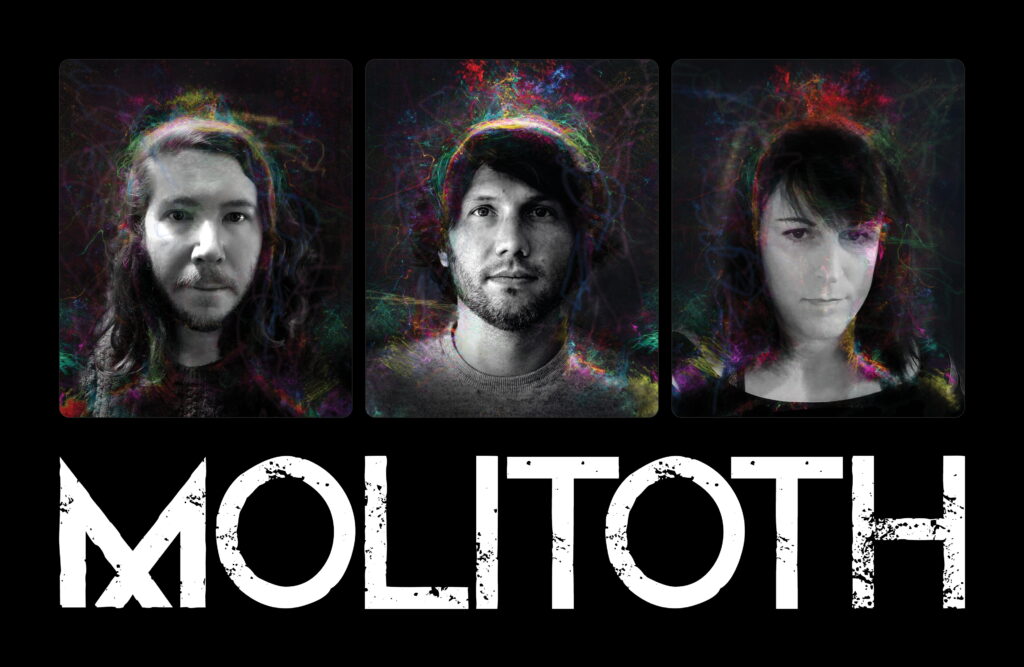Following the feature on the Progotronics XLVI compilation, we sat down with Kyle Brandt, a multifaceted artist from Kansas City, known for his work as the vocalist, songwriter, and producer behind the project Molitoth. Kyle is also recognized for his contributions to the band A Light Within, where he was instrumental in creating their three-part concept collection. His most recent release with Molitoth, You (2023), showcases his ability to blend progressive and alternative metal with profound emotional depth and storytelling.
Kyle’s journey with Molitoth has evolved from a solo endeavor to a more collaborative project, marking a new chapter in his creative process. With a musical background influenced by iconic bands like Pink Floyd, Tool, and Dredg, Kyle’s work continues to explore the uncharted, combining complexity in song arrangements with catchy choruses. In this interview, we explore the creative influences behind Molitoth’s You, the collaborative dynamics with bandmates Madelyn Robertson and Sam Sartorius, and the unique themes woven throughout the album.
Kyle shares insight into the inspiration behind his music, his vocal training with Tesseract’s Daniel Tompkins, and how Kansas City’s music scene shaped his artistry. Dive in for a deeper look at the mind behind Molitoth and the album that pushes his creative vision forward.
What inspired you to create the Preface/Body Matter/Epilogue diary series with A Light Within, and how did it influence your work with Molitoth?
I’m probably better known from my work as vocalist/musician in the Post-Metal band A Light Within, that has released a three-part concept collection. I’ve always been a big fan of concept albums, with some of my favorites coming from Pink Floyd, Dredg, and Tool. I think that when you can put together grand collective story that all connects, there can be an extra layer of magic. I don’t say that to take away from non-conceptual albums, as I love those as well… but it always seems a bit more special when everything connects on a deeper level.
How has your vocal training with Daniel Tompkins shaped your approach to vocal dynamics and performance?
If you don’t know Dan Tompkins, he is the vocalist for the popular prog metal band Tesseract, among others. Back in his era with the band Skyharbor, he was offering one-on-one vocal training and I took advantage of a few of those sessions. When he went back on tour with Tesseract, he put together a website & community full of tips & tricks on vocal health, warmup routines, and strategies to become a better vocalist. I really studied these techniques frequently which helped me level up, especially in the live setting. Dan at one point used the phrase “The Singers Lifestyle” which I really connected with. Stretching routines, muscle tension release, breath control, and even what food and drink you are putting into your body can all play a collectively huge part in performance.

What was the creative process behind The Tribunal, and what motivated you to expand Molitoth beyond a solo project?
The Tribunal was originally just a collection of demos that I was writing on my own. Orginal intent may have been to write parts for A Light Within, but I found these ideas that I had that did not mesh well there, so they sat in the song bank for a few years. Then COVID hit. At this point in time ALW was on hiatus, as well as the local music scene, so I made a decision to play around with those pieces a bit more and see what I could do with them on my own. During this process, I reached out to a couple of my musician friends in the local scene to see if they wanted to partake and luckily I got some great responses. They really helped me out in some spots that were lacking.
To be honest, there wasn’t much of a future planned for Molitoth in 2021. I toyed with the idea of taking the project live, but with COVID still an issue I just didn’t find it worth the effort.
Meanwhile, Maddy had sent me a few demo ideas she had put together and I sat on them for months not really feeling it… until one night when they all just hit right. I had a moment of clarity and heard the potential.. (At the time this would have been the tracks “Eviscerate” and “No Surrender”). After I started to dive into the re-recording and production of these tracks, we fell into a good collaboration where ideas just kept flowing. More demos turned into more songs, and it felt good and fun.
How has working with Madelyn Robertson and Sam Sartorius influenced the band’s sound and writing process for You?
After writing The Tribunal mostly on my own, I was pretty exhausted. So when the album You was coming together with Maddy, it was so refreshing to have someone else involved in the writing process. Overall I just find it more fun to bounce ideas off of other people and collaborate. Maddy did the majority of drums on the demos, but as the songs were all finished, we really wanted to pull in a really good drummer, so we reached out to our friend Sam and he committed. Sam is fabulous drummer by the way, I highly suggest you give him a follow, especially if you are into prog-math-rock such as Polyphia, Chon, and the like. He’s been featured on Drumeo and collabs frequently with guitarists such as Ichika Nito among others.

What are the main themes or messages you hope to convey through the lyrics on You?
YOU ranges over a few topics, from politics on “The Acolyte” to watching a friend lose a battle with cancer on “The Maze of Existance” and “Dissipate”.
However, You is really about self accountability, realization, and empathy. As the listener hears the term throughout the album, they will think these statements are directed at someone, however if you can imagine singing these lyrics while looking into the mirror, YOU becomes the reflection of yourself. I remember a saying from when I was kid that was something like “When you point a finger at someone, you have three fingers pointing back at yourself.”
Your music combines elements of progressive and alternative metal—what draws you to these genres, and how do you blend them?
I’ve always been a fan of progressive music. As a musician living in the modern era, where everything seems to have been done already, I seem to gravitate towards music that involves more complexity in song arrangement. At the same time, I love a big catchy chorus, so I’m assuming that is the alternative metal influence you hear.
As a producer, how do you approach creating atmosphere in Molitoth’s music?
Synth, and lots of it. There is typically an underlying synth melody in the background to help set a mood. I’ve had the opportunity to dive into huge bands stems, such as Tesseract, Vola, Katatonia, and they all involve SO MANY synth tracks, so I try to do the same.
What challenges did you face transitioning from being the sole member of Molitoth to working as part of a band?
Working as part of a collective has mostly pros, but has one big con… and that is that I have to adapt with other people’s timeframes, so I’ve had to learn to be really patient to an extent. People have everyday life obligations, so there is a certain alignment that needs to naturally take place when writing/recording parts. As a sole member, you only have to be reliant on yourself… but that gets draining as well.
How does your collaboration with post-metal act Sisters Of… inform your work with Molitoth?
As previously mentioned, I get drawn into progressive music. When I first heard Sisters of… I was instantly blown away. I thought “holy shit, this is coming out of my small home town?” Over time I made friends with those guys and we did some collabs which really forced me to be a more creative vocalist. Aaron Coker doing the lions share of the song writing and production really was the main inspiration for me to attempt a solo album.
P.S. If you love instrumental prog metal you will enjoy this band. It can be difficult to find due to the majority of results coming back with The Sisters of Mercy.
What role does Kansas City’s music scene play in your development as an artist?
Sometimes the music scene can be harsh, where bands are compared and lots of shit talk goes on, but honestly the scene at my time of playing live was all supportive and fun. The venues host well (shoutout to RecordBar, and RIP Riot Room) and the audience is all around great. Performing around the city really helped me gain confidence on stage.
What was the most significant lesson you learned during the recording of The Tribunal, and how did it shape your approach for YOU?
I just learned that it takes time, and can be a slow process. You work on things in little chunks of time. Over many many days, the pieces come together to form the final product. Invite all ideas, give them a try, and figure out what works and what doesn’t.

What specific experiences or emotions influenced the songwriting on YOU?
Lyrically I was driven to write a couple of songs based on watching a friend battle cancer. I tried to put myself in his and his families shoes, and write down the feelings I would have if that were happening to me. Next time you listen to “The Maze of Existance” or “Dissipate”, the lyrics might make a little more sense after knowing these details.
Can you describe the collaborative process between you, Madelyn, and Sam during the writing and recording of You?
I’d think like a great amount of bands in the modern era, we collaborate via online file sharing. Maddy or I write a song demo and we send it back and forth to bounce further ideas off each other. Then finally send it over to Sam for drums. Nothing groundbreaking. Obviously I wish we were fortunate enough to live in the same house, writing in person every day, but we are all old with families and jobs… so this is how it’s done. Honestly we are quite fortunate to live in an era which this type of technology exists, otherwise this project probably wouldn’t exist.
How do you balance technical proficiency with emotional expression in your music?
There are many bands out there that strive to be technical. They contain virtuosos who are bored otherwise. For myself, I just do what sounds good to ME. I let my influences bleed through my choices, and in certain areas a listener could be like “oh, that sounds like so-and-so,” but If you listen to my catalog, you are going to start hearing many different influences, which I think makes an overall unique expression. I’ve fallen into the same trap with other bands, where I’ve listened to one song and thought to myself “meh, that sounds too much like whomever…,” but I give it more listens, it grows on me, and turns into something I love.
What are your future plans for Molitoth, and how do you envision the band evolving after the release of You?
Right now we are in the demo writing phase of album #3. I think Maddy and I have about 7-8 songs we would like to finish up, but this go round is a bit slower. It would be GREAT to be able to take the project live some day, but honestly we would need to get a lot of traction and demand for that in order to spend the time and effort to make that happen.
You is available on Bandcamp. Like Molitoth on Facebook. Follow them on Instagram.

